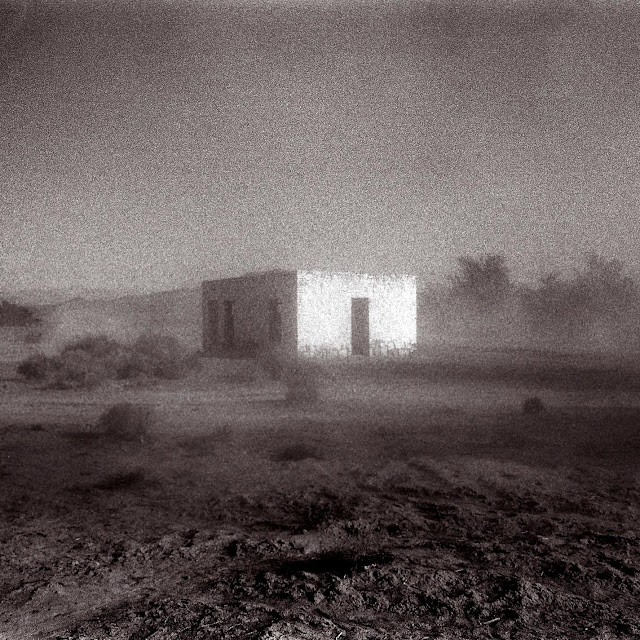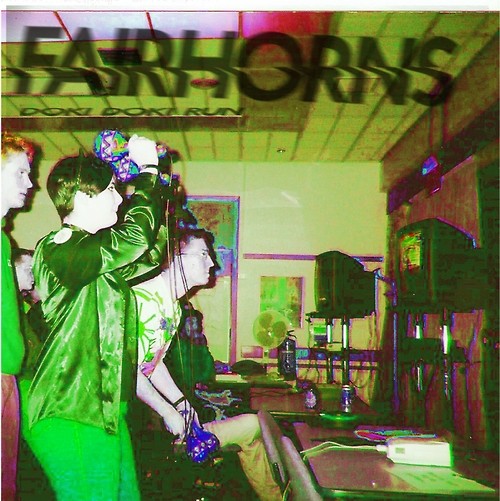
"Something sacred/ Something blue", as Darnielle intones pseudo-sardonically on In Memory of Satan, is precisely what Transcendental Youth thereby proves to be: despairing, yet with it irrefutably delightful. The diligence with which he approaches what is now an assiduously honed craft is admirable in a time of waning artistry and, as such, the result is one of unalloyed originality. There's little recycling of older endeavours here, nor much at all borrowed from elsewhere. Cry for Judas, all brass blare and acoustics that tumble like thistly weed across minimal rhythms, recalls elements of In The Aeroplane Over The Sea, yes, but it's one of the album's less inventive instances. That, and Until I Am Whole upon which that weird vocal processor favoured throughout 2 Rights Make 1 Wrong proffers the impression that Mogwai ventured transatlantic and infected the otherwise all-pervasive placidity of it all with an in every respect alien desolation.
For elsewhere, whether its barnstorming opener Ama aka Spent Gladiator 1 – the tale of the unsettled young lady hellbent on doing "every stupid thing that makes you feel alive" in futile exertion to "try to drive the dark away" – or the portentous rumbles of Night Light, Transcendental Youth is a tour de force in encapsulating the trials, tribulations, and trepidations of troubled juveniles. Paranoid and oft pained, it's a triumph. The sparse and elegant-as-airborne-gaggle balladry of White Cedar; the disquietingly upbeat The Diaz Brothers, during which you'd be significantly less shocked were Kiki Dee to materialise for a chorus than were the Anonymous 4 to throw in some of those glorious backing harmonies; the softer-than-snow sendoff that is the album's eponymous waltz.
You know how it is with Darnielle – there are enough elegiac stanzas within his each and every composition to fill up to five "reviews" there or thereabouts. Lakeside View Apartments Suite – vaguely mawkish chorus aside – is one such song as it drips wondrous poeticism, and his words are as poignant throughout as those snared on the spools of any which audiobook, or indeed any cassette ever manufactured for that matter. Thus to decontextualise upon this here page is to do a disservice to the great many ways in which he espouses superb, concertedly lo-fi musics with verisimilitudinous snippets of life lyrical. Best neglect the Synoptics of Matthew, Mark and Luke, therefore, for it's the comprehensively compelling Gospel According to John Darnielle which ever so greatly informs. And it may inform all – from "the loneliest people in the whole wide world", to those most popular already living The Life Of The World To Come. Epiphanic, as ever.
























